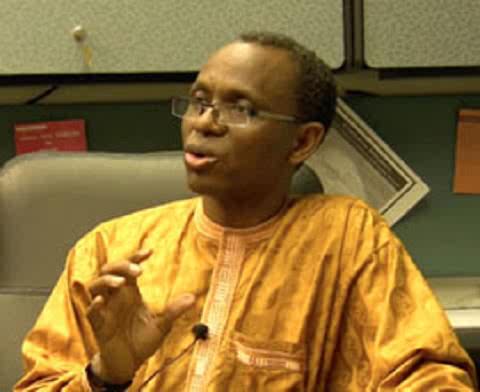Former Head of State and presidential candidate of the Congress for Progressive Change (CPC), retired General Muhammadu Buhari, hosted by Liberty Radio, Kaduna, spoke on a wide range of issues bordering on democracy in Nigeria since the First Republic, the merger by the opposition elements and the struggle to wrest power from the ruling Peoples Democratic Party (PDP) in the 2015 general elections, reports Northern Bureau Chief, SAXONE AKHAINE.
WOULD you say that Nigeria’s past political history was better than what we have today, and that when this situation is projected into the future, a disturbing picture emerges?
That is true to some extent. If we try to reflect on the First Republic till date, I think the biggest way to measure it is what the state of economy development was in the country from administration to administration whether it is civilian or military.
Look at how resources were utilised by the First Republic when it was based only on agriculture, and you see the infrastructure laid from the meager resources by the First
Republic.
Then you come to the military administrations; and of course, the most peculiar period, as far as earning is concerned from external resources, from oil from 1999 till date.
You try and find out the amount of money the country realised, the state of infrastructure, say in 1999 till date and the amount accrued to the country.
You will really be shocked by how resources were not credibly utilised because the railway, airways, roads, and waterways are quite not efficient. The solid infrastructure is virtually gone and then you ask; what was the money used for?
Look at the universities, polytechnics and infrastructure we built during the military regimes. But in spite of the resources, to sustain development became a trash in Nigeria, which the governments are responsible for.
God has endowed Nigeria with resources and human beings but we have failed to organise ourselves. Virtually from the First Republic, there was no leadership in Nigeria because the way our national resources had been squandered. No country can survive it except Nigeria.
Don’t you think there is also attitudinal problem on the part of leaders, who do not follow the due process of doing things, as responsible for the way we are drifting today?
The whole problem revolves around leadership at the top. This is the tragedy in Nigeria. Those people at the top and at the various levels are doing whatever they like and not what the Constitution or laws of the land prescribe.
The merger parties have completed their conventions; one would like to know how far the merger has yielded fruits?
The road to merger is quite rough. Rough in the sense that the ruling party has enormous resources and its capacity for coercion. Personally, I realise this since 2007: that the only way the opposition at all levels can counter the PDP is to come together to bring the dividend of democracy to their people.
The APGA has made it clear that it is not part of the APC. Some see this as a crack in the wall of the opposition; do you agree with this assertion?
The APGA has a very serious legal problem, but Governor (Rochas) Okorocha has declared for the APC. He attended our convention and I think he has courage to come out to identify with the APC.
But we have to be careful about the APGA because they have serious legal problems, which are in the courts.
People say the merging parties seem not to have an enviable record of internal democracy; and that the APC might not be different from PDP after all. What is your take on this?
I think that’s the beauty of democracy. But that won’t stop us — the CPC, ACN, ANPP and other opposition parties from consolidating on the merger.
What are your hopes that the APC would be registered; and what would happen in the event that it was not registered?
I think I am optimistic. If I am not optimistic, I would not attempt to take my presidential ticket three times and go to the Supreme Court.
Why I believe we are going to be registered is because there is an Electoral Law, if you want to register a political party. The Electoral Law facilitates the way you go about it.
First, you must have a headquarters in the Federal Capital, which can be identified. Second, you must have a convention and we have had our conventions and have agreed to forsake our existing parties to go for the APC.
Thirdly, we must have at a national spread, and those who would run the affairs of the party. As soon as we meet these criteria, and acknowledged by INEC that we have met the criteria according to Electoral Act, we would be registered.
By law, 30 working days after INEC acknowledges this, we are APC whether the receipt has been given or not.
But the CPC certificate of registration is with Senator Anga’s faction; don’t you think this can affect the registration of the APC by INEC?
Anga is not a member of the CPC and not faction. Anga, on registration of the CPC, happened to be the chairman of the interim (executive committee).
If you could recall, the CPC was registered in December 2009 and wanted to participate in the 2011 elections.
The 2010 Electoral Act for the general elections did not come into effect until about five or six months to the elections within which time the CPC, as a new party, had to register, do congresses, primaries, conventions and go into elections.
Yet, the CPC has senators, members of (House of) Representatives, Houses of Assembly and councilors. Is this not a wonder?
Anga happened to be the interim chairman of the party and then he expressed interest to be the governor of Kano State. By law, he knew it’s impossible for him to be the chairman of CPC and as well be the gubernatorial candidate in Kano. So, he had to formally write to resign, for him to participate in the primaries to become a gubernatorial candidate.
Therefore, if he said he has got the CPC registration (certificate), then he stole it and we will take him to court if he didn’t return it. If he is holding any document, he is holding it against the law.
Are you prepared to face whatever problems on the way to APC’s registration?
If I would go to court in 2003 and spend 30 months, 2007 and spend 18 months, and 2011, although as a member of the CPC and not as presidential candidate, and spend about eight months, I think I am an optimist of purpose.
It’s only natural that the PDP may not like to see the APC registered and it’s perfectly in order for them, politically, to see if they can frustrate the efforts. But we are ready for it (registration) and we would realise it.
Do you have trust in the INEC to conduct credible elections in 2015?
We, as APC, together with other parties and civil societies, want to make suggestions for amendment of Electoral Act 2010, towards the 2015 general elections.
Would you support the conduct of elections in one day, to ensure free and fair outcome; and how would you fight for the realisation?
I hope we don’t have to fight for anything; I hope we would just make suggestions according to law.
I think INEC, this time around, has started working according to the requirements of the oppositions. But if you have the elections in one day, there are efforts to manipulate.







Leave a comment